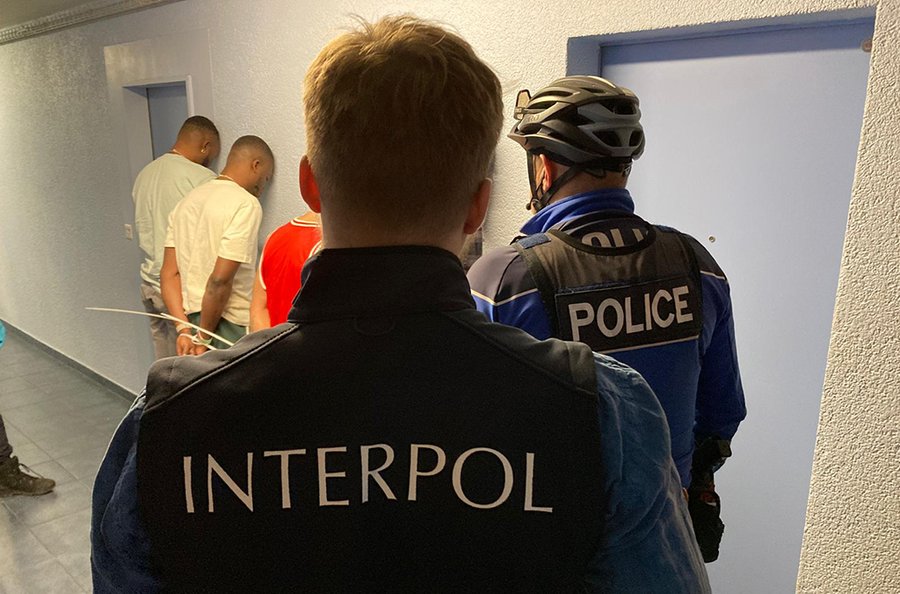Africa
Interpol’s Global Crackdown: 300 Arrests in West African Crime

Interpol arrests 300 people in a major crackdown on West African crime groups, disrupting illicit networks globally.
Police from various continents arrested 300 individuals and seized $3 million, while also blocking a sum of 720 bank accounts in their pursuit against West African organized crime organizations. Interpol announced this on Tuesday as part of the global operation.
According to a statement from the agency, their initiative named Operation Jackal III took place across 21 countries between April 10th and July 3rd with an objective of combating online financial fraud perpetuated by West African syndicates.
Isaac Oginni, the director of Interpol’s Financial Crime and Anti-Corruption Centre, stated that the increase in financial fraud originating from West Africa is concerning. He emphasized the significance of global law enforcement cooperation to tackle these widespread criminal syndicates by citing this operation’s findings as evidence.
Black Axe, which is one of the highly notable criminal networks in West Africa, was among the groups that were singled out. The group specializes in cyber fraud activities, human trafficking and drug smuggling operations while also perpetrating violent crimes on both local and international scales as stated by the agency.
The agency reports that Black Axe is currently being investigated for money laundering across over 40 countries as they employed the use of money mules to open various bank accounts worldwide. Those connected with this matter consist of individuals who are citizens hailing from Colombia, Argentina, Nigeria and Venezuela.
After a thorough investigation spanning five years in Argentina, the authorities successfully dismantled Black Axe and confiscated $1.2 million worth of premium counterfeit currency, detained 72 individuals involved in the illicit operation, and immobilized around 100 bank accounts related to their activities.
Having celebrated its centennial last year, Interpol is an organization comprising 196 member countries. It aims to foster communication and collaboration among national police forces in the domains of countering terrorism, financial crime, child pornography, cybercrime and organized criminal activities by keeping tabs on suspects and lawbreakers.
The largest, though not necessarily most well-financed police body in the world has been facing fresh obstacles such as a rising number of cybercrimes and instances of child sexual abuse. There are also mounting rifts between its member nations.
Last year, Interpol’s budget was approximately 176 million euros (equivalent to $188 million), whereas Europol had more than 200 million euros and the FBI in the United States held a massive amount of $11 billion.
